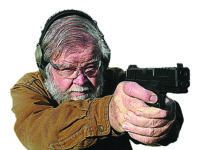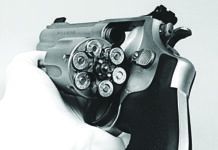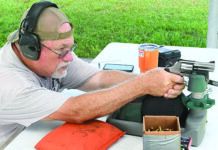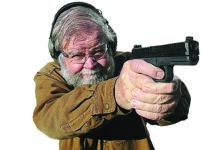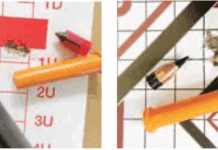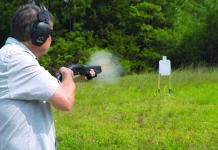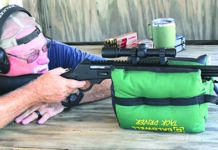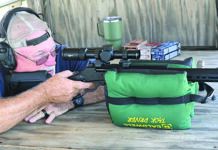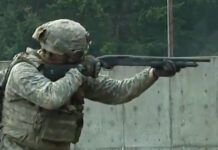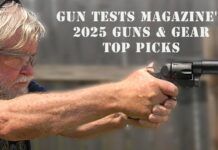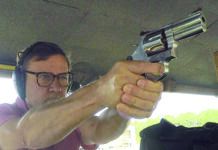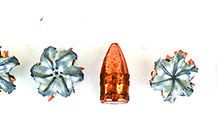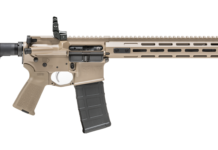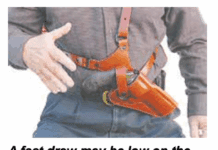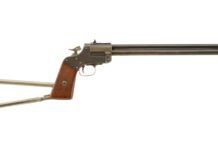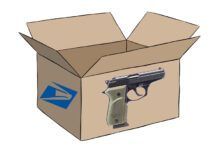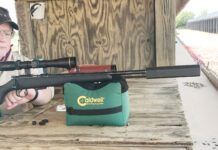In a case that could affect Gun Tests readers who might occasionally sell a limited number of personal firearms, the U.S. District Court for the Northern District of Alabama has held that ATF exceeded its authority by expanding the definition of being “engaged in the business” of “dealing in firearms.”
On September 30, in Butler v. Bondi, the court ruled that the Bureau of Alcohol, Tobacco, Firearms and Explosives exceeded its statutory authority by issuing a 2024 Final Rule expanding the definition of being “engaged in the business” of “dealing in firearms.”
From the opinion written by Corey L. Maze, United States District Judge, plaintiffs “Don Butler and David Glidewell sometimes buy, sell, and trade guns for their personal collections. They argue that Congress does not consider them to be engaged in the firearms business, but the Bureau of Alcohol, Tobacco, and Firearms (“ATF”) does — if ATF follows its 2024 Final Rule interpretation of Congress’s firearms statutes.”
Butler and Glidewell say they fit within the expanded coverage created by the Final Rule, and their fear that the Final Rule criminalizes their dealings unless they secure a dealer’s license has stymied their plans to buy, sell, and trade with acquaintances and persons they meet at local gun shows. So Butler, Glidewell, and the National Rifle Association (“NRA”) sued Attorney General Pam Bondi, ATF Director Daniel Driscoll, the ATF, and the Department of Justice and asked the court to hold unlawful and set aside the ATF’s “engaged in the business” Final Rule.
Under the Firearms Owners’ Protection Act (FOPA) of 1986 (which amended the Gun Control Act of 1968), someone is “engaged in the business” of dealing in firearms if that person “deal[s] in firearms as a regular course of trade or business with the principal objective of livelihood and profit through the repetitive purchase and resale of firearms.”
The 2022 Bipartisan Safer Communities Act (BSCA) altered that definition by replacing “livelihood and profit” with “to predominantly earn a profit.” The BSCA did not alter FOPA’s exclusion for “a person who makes occasional sales, exchanges, or purchases of firearms for the enhancement of a personal collection or for a hobby, or who sells all or part of his personal collection of firearms.”
On April 19, 2024, the ATF promulgated the 2024 Final Rule “to clarify the criteria for determining when a person is ‘engaged in the business.’”
The Final Rule provides that “there is no minimum threshold number of firearms purchased or sold that triggers the licensing requirement” and that “there is no minimum number of transactions that determines whether a person is ‘engaged in the business’ of dealing in firearms.”
It explains that “even a single firearm transaction or offer to engage in a transaction . . . may require a license.” The Final Rule also excludes firearms acquired for “personal protection” from the firearms that may be sold from a personal collection without a license.
Congress forbids anyone, “except a licensed importer, licensed manufacturer, or licensed dealer, to engage in the business of importing, manufacturing, or dealing in firearms.” Dealing in firearms without a license is punishable by up to five years’ imprisonment, a $250,000 fine, and a loss of the right to possess a firearm.
On July 19, 2024, the National Rifle Association and two NRA members sued the attorney general, the ATF, the ATF director, and the Department of Justice, asking the district court to invalidate the Final Rule on several grounds.
The district court invalidated the Final Rule, holding that the ATF exceeded its statutory authority by issuing it. The court issued a permanent injunction against the ATF and the DOJ from enforcing several provisions of the Final Rule against the plaintiffs in the case, including all members of the NRA, and entered a declaratory judgment to that effect.



